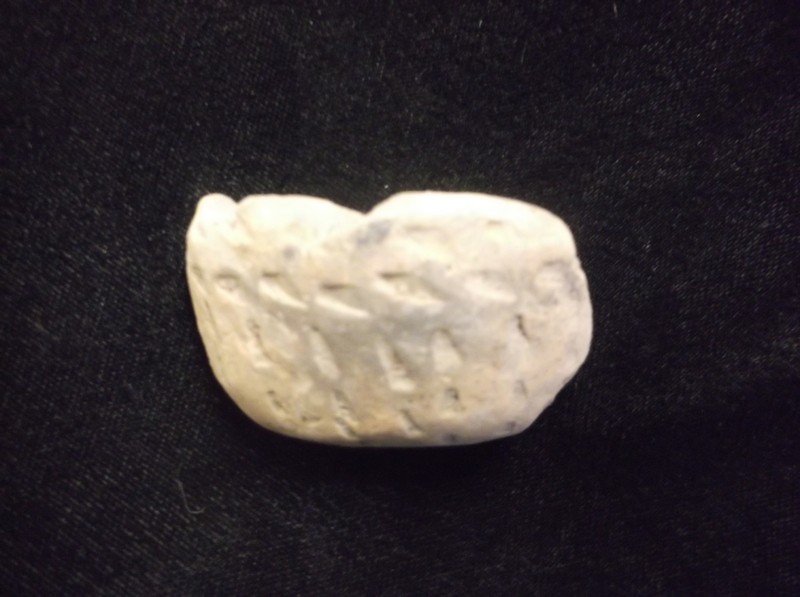Possible colonoware oil lamp.
This file appears in: Fur Traders, Indigenous Peoples, and the Violence of Urban Slavery
One of the more unusual artifacts in the assemblage was this hand-built sand-tempered vessel, probably used as an oil lamp. This vessel form is not common in Native American traditions, and this example may be an example of a ‘colono-type’ vessel. Such wares are understood to combine African, Native American, and European pottery traditions, and on the Atlantic coast, their presence in plantation sites has been argued to be evidence for the continuity of West African pottery traditions among enslaved potters. Colonoware has only rarely been reported in Louisiana, but it may have also gone unrecognized in urban sites due to the assumption that any hand-built ware represents trade with Native American groups.
This file appears in: Fur Traders, Indigenous Peoples, and the Violence of Urban Slavery
Fur Traders, Indigenous Peoples, and the Violence of Urban Slavery
Very few well-preserved archaeological sites dating from the French Colonial era have been excavated in New Orleans. As most of these are located in areas that have been developed continuously since the early eighteenth century, many are disturbed…
